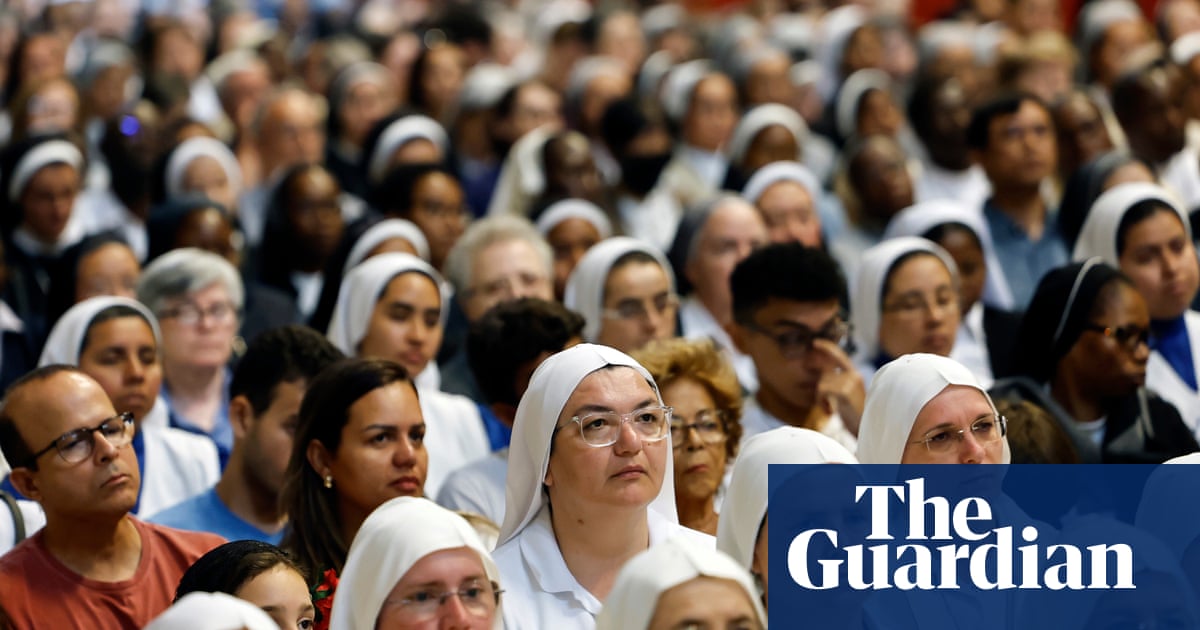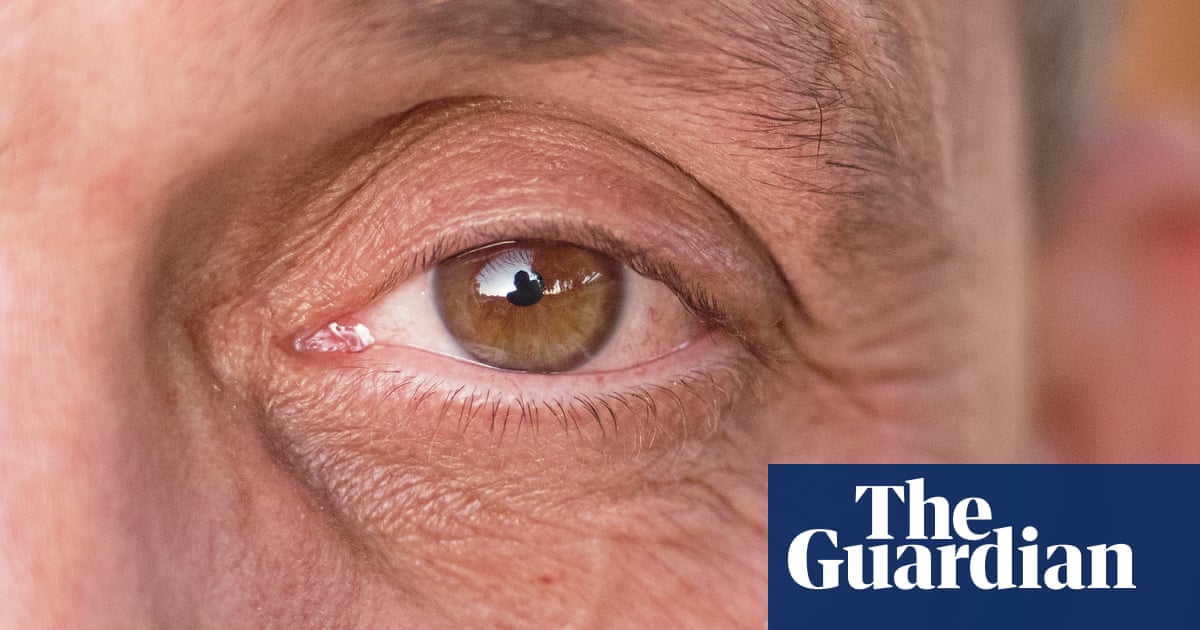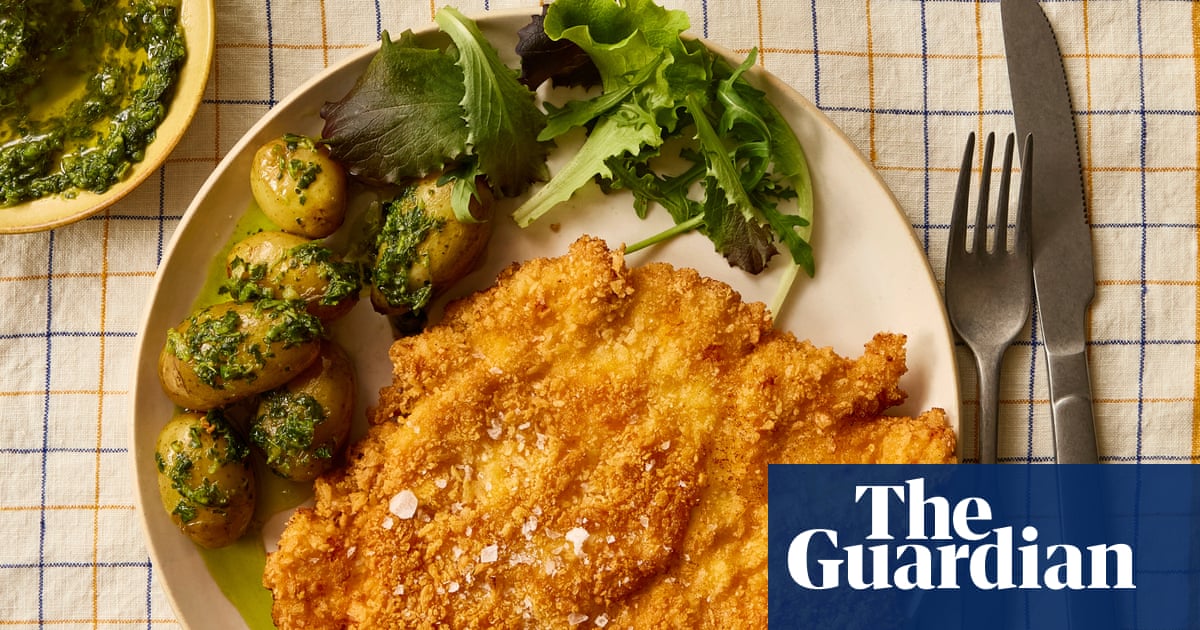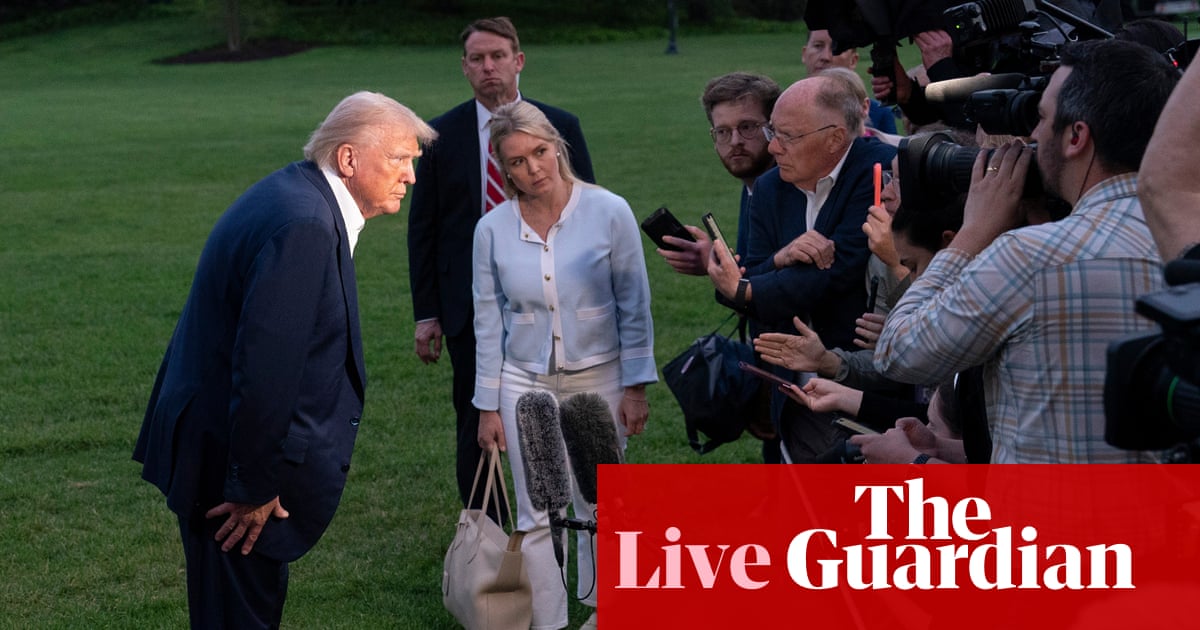A far-right Trump admirer who opposes military aid to Ukraine has decisively won the first round of Romania’s presidential election rerun, near-final results show, raising the prospect of another disruptive nationalist joining the EU leaders’ club.
With 99.99% of votes counted on Monday, George Simion, 38, who sports Maga caps, pushes a sovereignist, socially conservative agenda and has called for the “Melonisation” – referring to Italy’s far-right prime minister – of Europe, scored 40.96%.
That was almost double the score of second-placed candidate, Nicușor Dan, the centrist mayor of Bucharest, and higher than pre-election polls had predicted. The two will face each other in a second-round runoff due on 18 May.
Dan squeaked into the second round with 20.99%, less than a percentage point more than Crin Antonescu, a pro-European former senator backed by the ruling Social Democratic party (PSD) and the centre-right National Liberal party (PNL).
“This is not just an electoral victory, it is a victory of Romanian dignity. It is the victory of those who have not lost hope, of those who still believe in Romania, a free, respected, sovereign country,” Simion said after the result became clear.
“I am here to serve Romanians, not the other way around,” he said in a statement early on Monday, insisting he believed in an EU “that thrives as a nest for its diverse and sovereign nations – not as a rigid system enforcing one-size-fits-all policies”.
The far-right candidate, whose Alliance for the Union of Romanians (AUR) has grown from an anti-vax movement into the country’s second-largest party, finished first in 36 of Romania’s 47 electoral districts and secured 61% of the large overseas vote.
Dan, a 55-year-old mathematician who founded the Save Romania Union party (USR) and campaigned as a pro-EU, anti-corruption independent, called the runoff a battle “to convince Romanians that Romania needs its pro-western direction”.
He said the two weeks leading up to the runoff would be “difficult against this isolationist candidate … It will not be a debate between individuals, it will be a debate between a pro-Western direction for Romania and an anti-western direction”.
Experts have said Dan might struggle to beat Simion in the runoff because of tensions between the independent candidate and the country’s two big centre-left and centre-right mainstream parties that might deter their voters from switching allegiance.
“Simion has a bigger pool of votes than Dan at the moment,” said Cristian Pîrvulescu, a political scientist. The votes of the fourth-placed finisher, Victor Ponta, a former prime minister, could be critical, potentially making him a kingmaker.
Romania’s president has a semi-executive role with considerable powers over foreign policy, national security, defence spending and judicial appointments. They also represent the country on the international stage and can veto important EU votes.
A Simion victory could lead to Romania – which shares a border with Ukraine and is a member of both the EU and Nato – veering away from the mainstream path and becoming another disruptive force within the EU alongside Hungary and Slovakia.
It would also be welcomed by conservative nationalists in Europe and beyond – including senior Trump administration figures such as US vice-president JD Vance – who accused Bucharest of denying democracy after the original ballot was cancelled.
That vote last November was won by Călin Georgescu, a far-right, Moscow-friendly independent, but was annulled by Romania’s top court after declassified intelligence documents revealed an alleged Russian influence operation.
Georgescu, who denies any wrongdoing, was later placed under investigation on counts including misreporting campaign finances, misuse of digital technology and promoting fascist groups. In March, he was barred from standing in the rerun.
Simion promised on Sunday to make Georgescu prime minister, either through a referendum, early elections or forming a new government coalition, if he won. Far-right groups have 35% of parliamentary seats after elections held in December.
Georgescu, 63, called the vote rerun “a fraud orchestrated by those who have made deceit the only state policy”, but said he voted on Sunday to “acknowledge the power of democracy, the power of the vote that frightens and terrifies the system”.
Simion denies his policies are far-right but has described his party as “natural allies” of Trump and promised an alliance of EU countries “in the spirit of Maga”. He has frequently criticised Russia, but consistently opposed military aid to Ukraine.
To date, Romania has donated a Patriot air defence battery to Kyiv, is training Ukrainian fighter pilots and has enabled the export of 30m tonnes of Ukrainian grain through its Black Sea port of Constanta since Russia’s invasion.

 2 hours ago
3
2 hours ago
3













































